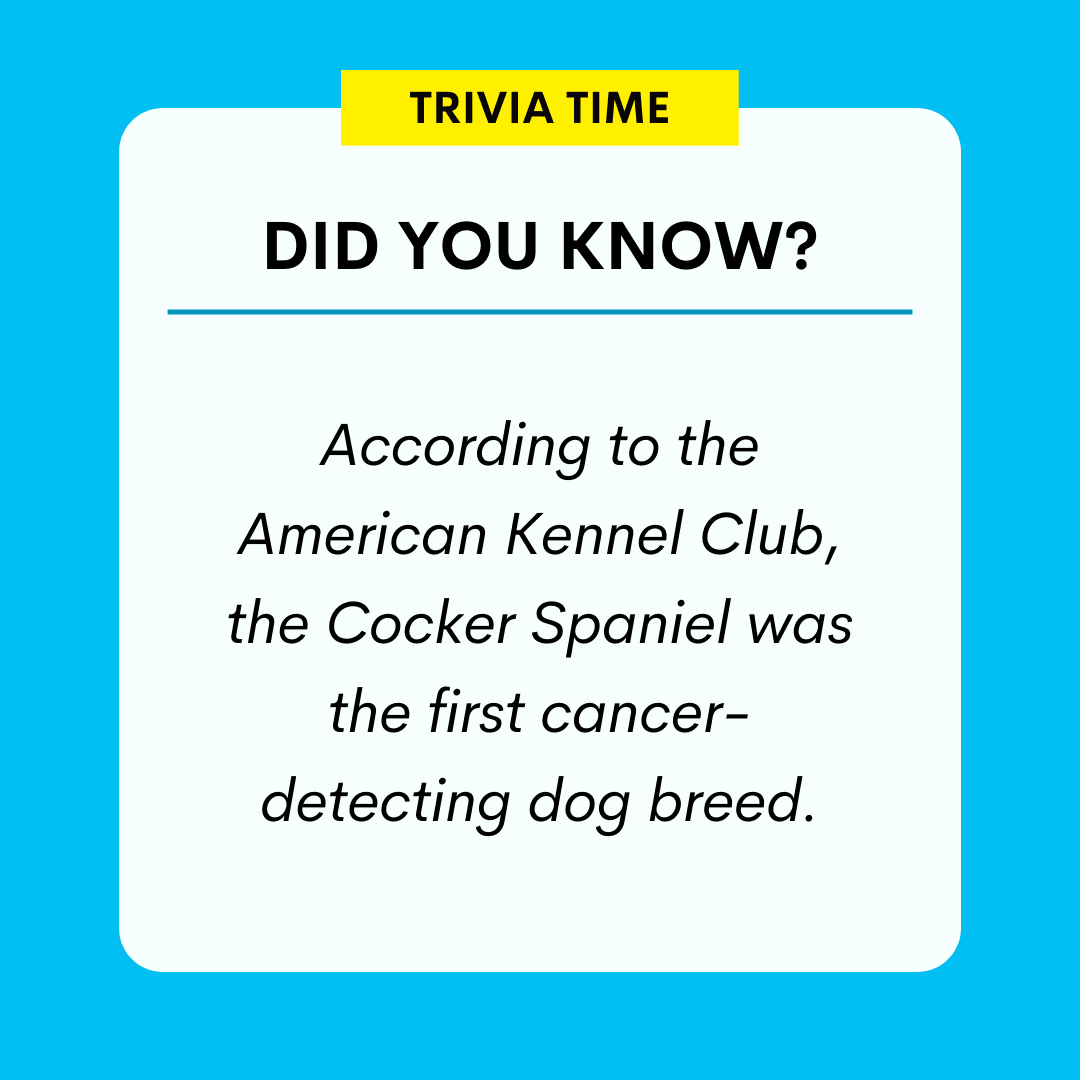Sweet-natured, beautiful, and just the right size, the Cocker Spaniel makes an excellent companion for many different types of households and people. They’re a great choice for families and singles alike due to their loving and eager-to-please nature. Read on to discover more about this popular breed and determine if a Cocker Spaniel is the breed for you.
History of the Cocker Spaniel

The American Cocker Spaniel descended from the English Cocker Spaniel, both of which were used to hunt quail and other small birds. English Cocker Spaniels arrived in the United States in the late 1800s, but Americans favored a smaller version of the dog for hunting small game. As a result, the Cocker was gradually bred down in size over several generations, and the first “genuine” American Cocker Spaniel was born around 1880.
In 1935, the American Kennel Club (AKC) formally divided the American and English Cocker Spaniels so that they were no longer considered the same breed. Following this split, the American Cocker’s popularity skyrocketed, and the breed is still beloved by many today.
Cocker Spaniel Characteristics
Appearance and Coat
An average Cocker Spaniel size is about 13 to 15 inches tall at the withers. A healthy weight for the breed is around 15 to 30 pounds. These dogs are known for their floppy ears, big eyes, and wavy coats that can be a variety of colors including black, cream, white, red, and brown.
Temperament
The Cocker Spaniel is an easy-to-train, lively, and loving breed that is ideal for first-time dog owners. Cockers are very devoted and eager to please their owners, but they are a sensitive breed that responds best to positive reinforcement and reward-based training techniques.
Cocker Spaniels that have been properly trained and socialized from the time they are puppies will typically have no trouble getting along with other dogs, children, and strangers. For the most part, these dogs are excited to meet just about anyone.
Health
Cocker Spaniels are generally healthy dogs and have an average lifespan of about 12 to 15 years. However, like all breeds, they are prone to certain health conditions that owners should be aware of. Two common conditions seen in Cocker Spaniels are chronic ear infections and hypothyroidism:
- Ear infections: A Cocker’s long, floppy ears tend to trap warm air inside the ear canals, which can promote the growth of bacteria and, in turn, ear infections. That said, it’s important to take special care of a Cocker Spaniel’s ears and clean them regularly.
- Hypothyroidism: When the thyroid gland doesn’t produce enough thyroid hormone, it can result in hypothyroidism. While common in dogs and highly treatable, this condition can be hard to spot because its signs are subtle. Cocker Spaniel owners should keep an eye out for symptoms of hypothyroidism such as weight gain, hair loss, and lethargy.
Caring for a Cocker Spaniel
A Cocker’s Ideal Home
 Cocker Spaniels are versatile dogs that can adapt to a wide variety of different living situations. However, it’s important to note that Cockers are naturally very people-oriented and like to be with their owners as much as possible. They are prone to separation anxiety and don’t do well when left alone for long periods of time, so Cocker Spaniels are best suited for households where someone is home for the majority of the day.
Cocker Spaniels are versatile dogs that can adapt to a wide variety of different living situations. However, it’s important to note that Cockers are naturally very people-oriented and like to be with their owners as much as possible. They are prone to separation anxiety and don’t do well when left alone for long periods of time, so Cocker Spaniels are best suited for households where someone is home for the majority of the day.
Training a Cocker Spaniel
Cocker Spaniels are known for being easy to train, and they usually respond well to reward-based training. Because Cockers are very food-driven, you can use treats as an incentive for them to drop things they shouldn’t be carrying. Treats can also help you control your dog’s desire to guard objects that aren’t meant to be toys.
Exercise Requirements
Cocker Spaniels were bred to be active hunting dogs, so they require a lot of exercise to burn off their high energy levels. Long walks and hikes are both excellent ways to get them the regular exercise they need because they like spending time outdoors with their owners. Additionally, many Cocker Spaniels enjoy dog sports like hunting, tracking, and agility, and competitive obedience.
Grooming and Hygiene
If not groomed frequently, Cocker Spaniel coats are prone to knots and matting. That said, it’s important to brush them on a regular basis to keep their coats healthy and minimize shedding. To keep their Cocker Spaniel’s coat looking its best, many owners use professional groomers. Additionally, be sure to take the time to check your Cocker’s nails and trim them if needed.
As with any dog, dental care is an important part of a Cocker’s Spaniel's hygiene routine. You can perform dental care by brushing your dog’s teeth and offering dental treats or toys, but professional dental cleaning is recommended as needed.
Ready to bring a Cocker Spaniel into your family? Find your newest furry friend on Lancaster Puppies today!

